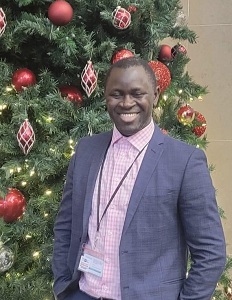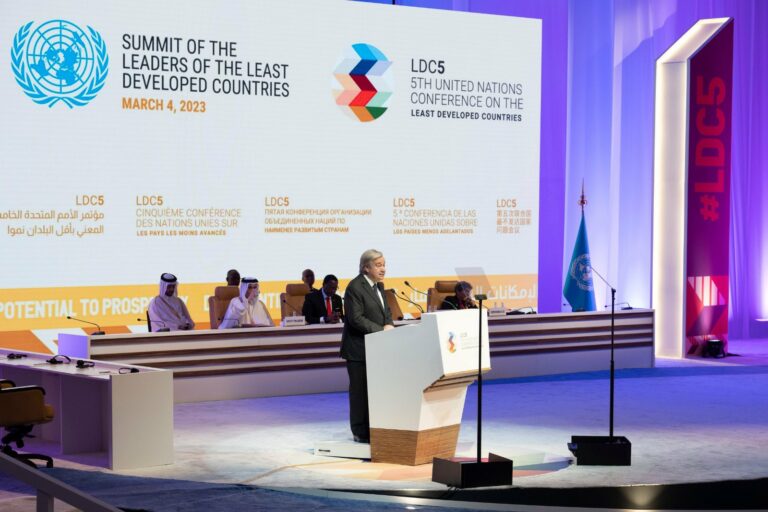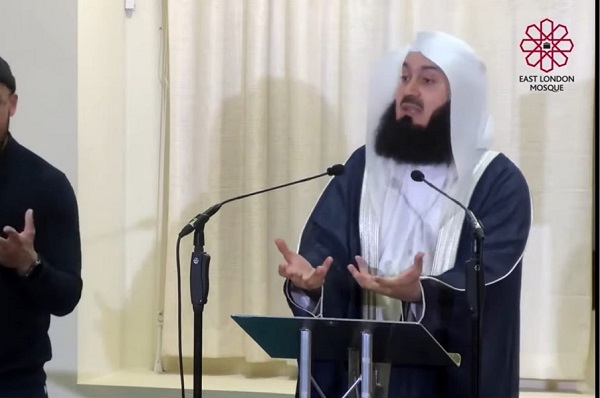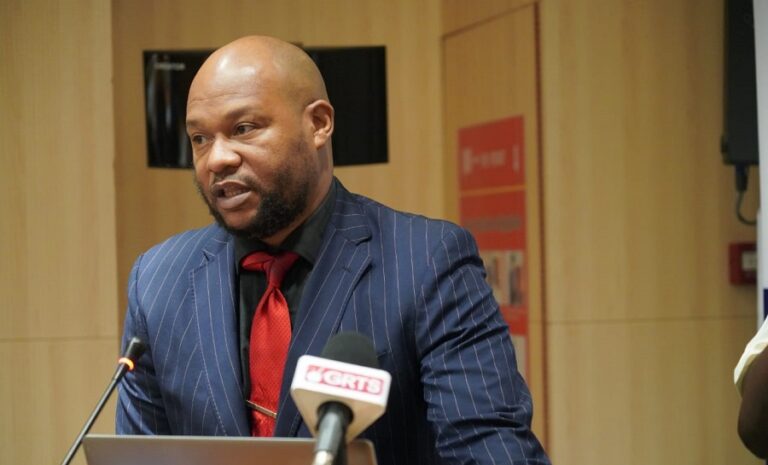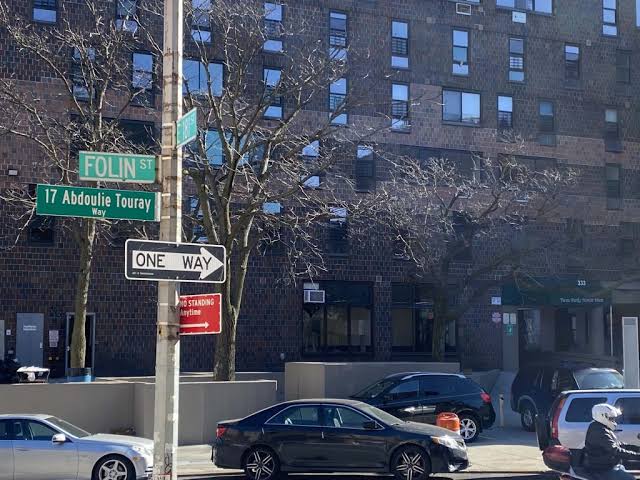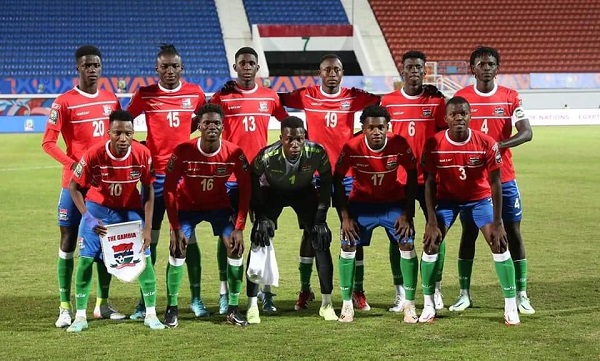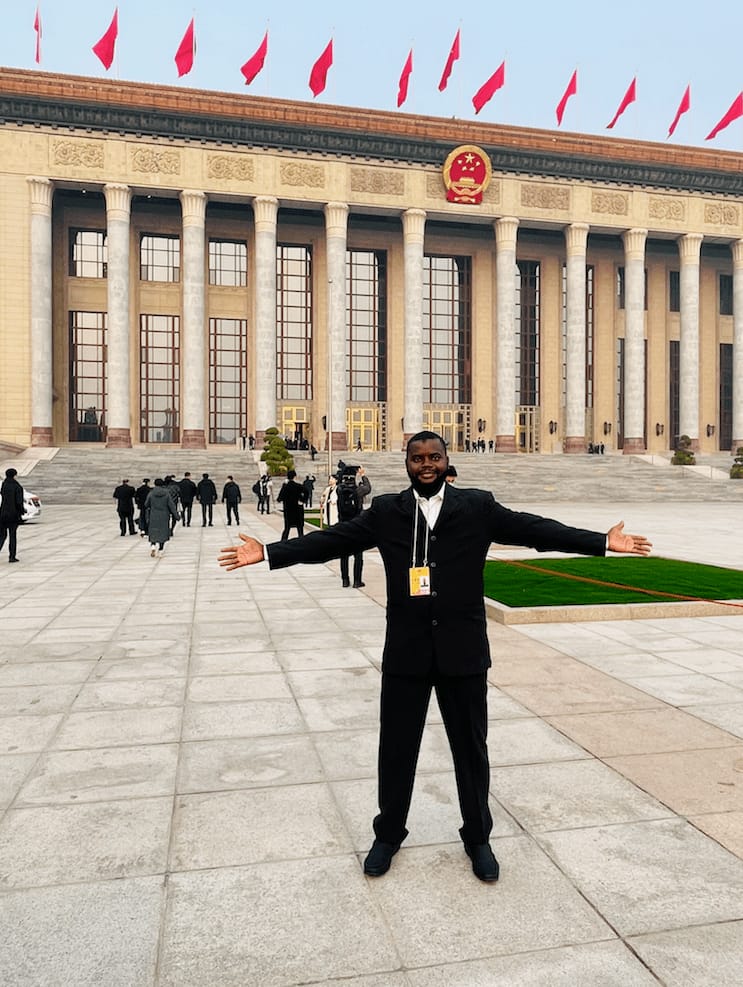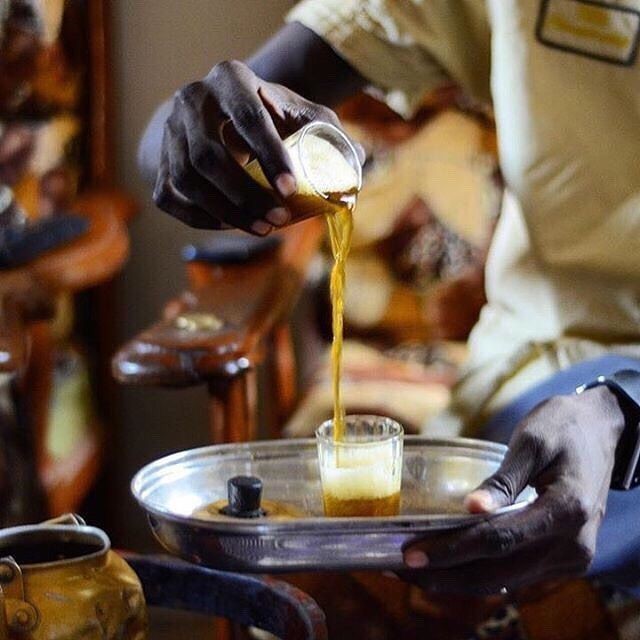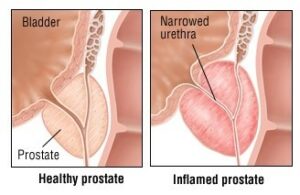By Prof. Raphael Nyarkotey Obu
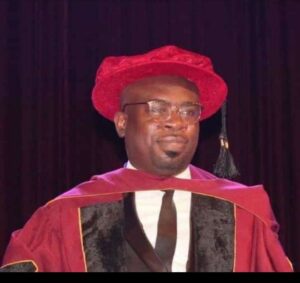
The writer
Gambia: How sugar in your drinks destroys the body

I have observed keenly that there is a wide range of sugar desserts in the Gambia. This is a great concern for public health. I was amazed to see the quantity of sugar one man added to his attaya on fire.
I had to step in to educate the group about the dangers of the high sugar content in attaya tea. I emphasized the numerous health benefits of attaya without sugar. But this does not only pertain to attaya. It is evident in all the desserts I have tasted in the Gambia. I think it is time we educate the public on the dangers associated with high sugar consumption in the Gambia. Though several studies have linked high sugar intake to cardiovascular disease, cancers, and many others. Surprisingly, it appears the situation is lower in the Gambia.
For instance, one recent study by Koller and Agyemang (2020) reports that the obesity prevalence ranged in the Gambia is about 2.3% to 11.7%. On the other hand, diabetes was 0.3%. Hypertension prevalence ranged from 18.3% to 29%. The prevalence of hypercholesterolemia ranged from 2.2% to 29.1%.
The prevalence of smoking ranged from 16% to 42.2% in men. Prevalence of insufficient fruit and vegetable consumption, inadequate physical activity, and alcohol consumption was 77.8%, 14.6%, and 2.3%, respectively.
An older study by Bah et al. (2001) evaluate the incidence of cancer in The Gambia over 10 years using data collected through the Gambian National Cancer Registry.
The data accumulated show a low overall rate of cancer incidence compared to more developed parts of the world. The overall age-standardized incidence rates (ASR) were 61.0 and 55.7 per 100 000 for males and females, respectively. In males, liver cancer was most frequent, comprising 58% of cases (ASR 35.7) followed by non-Hodgkin lymphoma, 5.4% (ASR 2.4), lung 4.0%, (ASR 2.8), and prostate 3.3% (ASR 2.5) cancers. The most frequent cancers in females were cervix uteri 34.0% (ASR 18.9), liver 19.4% (ASR 11.2), breast 9.2% (ASR 5.5), and ovary 3.2% (ASR 1.6). The data indicate that cancers of the liver and cervix are the most prevalent cancers, and are likely to be due to infectious agents. According to the latest WHO data published in 2020 Prostate Cancer Deaths in Gambia reached 21 or 0.16% of total deaths annually with a world rank (156). The incidence rate is about 6.08% as juxtaposed Ghana where incidence reached 1,031 or 0.59% of total deaths, the rate is 24.21% annually with world rank (50).
Though Ghana has a higher life expectancy rate as compared to Gambia (64.11 and 62. 61%). Many factors account for these disparities. However, Nigeria has a lower life expectancy (52.89%).
Though sugar in a small amount is fine for you. Too much consumption is seen in the Gambia, which is a huge concern to me as a holistic and preventive health practitioner. Sugar impacts just about every organ system in the body.
Hence, in this article, I examine the science behind sugar and its negative effect on the body.
Sugar, science
Weight Gain
A recent study by Faruque et al. (2019) affirmed that added sugar in our diets is contributing to the current obesity incidence globally.
Sugar-sweetened drinks like sodas, juices, and sweet teas are loaded with fructose, a type of simple sugar. Thus, Luo et al. (2015) study agreed that fructose allows us to eat more food, thus increasing our glucose level, the chief sugar in our starchy foods.
On the other hand, leptin, a key hormone that regulates our hunger drive to avert eating is affected by our intake of fructose in animal studies (Aslam et al. 2021).
Two recent studies (Malik and Hu, 2022; Neelakantan et al. 2021) found that the more we eat sugary diets, it leads to weight gain and increased risk of type 2 diabetes. Additionally, Ma et al. (2016) found that the more we drink sugar-sweetened beverages we predispose ourselves to more visceral fat, a kind of deep belly fat linked to diabetes and heart disease.
Heart Diseases
Three studies for instance (Neelakantan et al. 2021; Janzi1 et al. 2020; WHO, 2020) report that the increase of heart disease as the number one cause of death is linked to high-sugar diets.
A previous study (DiNicolantonio et al. (2016) agreed that high-sugar diets can trigger obesity and inflammation, triglycerides, blood sugar, and blood pressure levels. Another (Kolderup and Svihus, 2015) note that too much sugar, from sugar-sweetened drinks, is associated with atherosclerosis.
One human study (Janzi et al. 2020) evaluated 25,877 adults and found that those who ate sugar stood the chance of getting heart disease and coronary problems compared to those who ate less sugar. It can also increase stroke by just eating about eight servings per week of sugar-sweetened beverages.
Just one 12-ounce (473-ml) can of soda contains 39 grams of sugar, which equates to 8% of your daily calorie consumption, based on a 2,000-calorie diet(https://us.coca-cola.com/products/coca-cola/original).
This means that one sugary drink a day can bring you close to the recommended daily limit for added sugar.
Acne
The report has it that if you want to develop acne, just eat refined carbs, including sugary foods and drinks. Atkinson et al. (2021) diets with a higher glycemic index, like processed sweets, raise blood sugar more rapidly than foods with a lower glycemic index. Kucharska et al. (2016) also held the view that sugary foods can cause a spike in blood sugar and insulin levels, leading to increased androgen secretion, oil production, and inflammation — all of which play a role in acne development.
On the hand, low-glycemic diets were found to decrease acne risk, and high-glycemic diets are associated with a higher acne risk (Baldwin et al. 2021).
For instance, one study by Penso et al. (2020) evaluated over 24,452 individuals and report that taking fatty and sugary products, sugary beverages, and milk was linked with present acne in adults.
Finally, Campbell and Strassmann (2016) found that rural communities that consume traditional, non-processed foods have much lower rates of acne compared to more urban, high-income areas where processed food is part of a standard diet. This support the doctrine that diets high in processed, sugar-laden foods contribute to the development of acne.
Type 2 Diabetes
An old study by Rolfe et al. (1992) assessed the register of diabetic patients attending the Royal Victoria Hospital, Banjul, The Gambia, and data on hospital admissions recorded over 1 year. Two hundred and sixty-nine patients (110 men, 159 women) were registered of whom 66 (25%) were receiving insulin. Seventy-five patients (28%: 40 men, 35 women) were newly diagnosed. There were 95 hospital admissions (5.2%) related to diabetes, as were a fifth of medical out-patient attendances.
The World Data Atlas ( Knoema. 2021) reports that Gambia diabetes prevalence was 1.9 % in 2021, down by 0.00% from 2011. Diabetes prevalence refers to the percentage of people aged 20-79 years who have type 1 or type 2 diabetes.
The International Diabetes Federation (IDF,2022) also reports that the Gambia has a total adult population of 1,126,000, and the prevalence of diabetes in adults represents 1.6%. The total number of cases of diabetes in adults in the population is 18,100.
The International Diabetes Federation (IDF) is an umbrella organization of over 230 national diabetes associations in 170 countries and territories. It represents the interests of the growing number of people with diabetes and those at risk. The Federation has been leading the global diabetes community since 1950.
The World Health Organisation (WHO, 2022) predicts that about 4% of The Gambian population could be diabetic by 2030.
On the global front, Lin et al. (2020) assert that diabetes is a leading cause of mortality and reduced life expectancy. The incidence rate has over doubled in the past 30 years, and could even go up more. Rippe and Angelopoulos, (2016) study also found that too much sugar has been connected with an increased risk of diabetes. Though we cannot pinpoint the fact that sugar consumption causes diabetes, there are strong connections.
This is because eating too much sugar could indirectly raise diabetes risk by contributing to weight gain and increased body fat — both of which are risks for developing diabetes (Stanhope, K, 2015).
On the other side, Leitner et al. (2017) study also found that obesity is regarded as a result of too much sugar and is considered the strongest risk factor for diabetes.
When too high-sugar consumption also drives resistance to insulin, a hormone produced by the pancreas that regulates blood sugar levels. Insulin resistance causes blood sugar levels to rise and strongly increases the risk of diabetes. Drouin-Chartier et al. (2019) research established that people who drink sugar-sweetened beverages have a high propensity to get diabetes. The study further found that those who took sugary beverages for over 4 years have a higher risk for type 2 diabetes.
Cancer Risk
It has been established that too much sugar could increase some cancers. This is because too much sugar increases obesity and eventually could trigger some cancers (Crudele et al. 2021).
Additionally, too much sugar rises inflammation in the body and could trigger insulin resistance, both rises cancer risk (Chiefari et al. 2021; Murata, 2018).
Makarem et al. (2018) review 37 prospective cohort studies and found that in two of five studies on added sugar, a 60% – 95% raises cancer risk. The same review found that in 8 of 15 studies on sugary foods and beverages, a 23% – 200% increased cancer risk was detected with greater sugary beverage consumption.
Other studies have found sugar intake to be linked to specific types of cancer.
For instance, one human study (Miles et al. 2018) in 22,720 men over 9 years found that increased sugar consumption from sugar-sweetened beverages was linked to a higher risk of prostate cancer. On the other hand, Li et al.(2017) study linked oesophageal cancer with higher consumption of sucrose, or table sugar, and sweetened desserts and beverages. This is why sucrose should be limited in the Gambian sweetened desserts.
Depression
Two studies (Jacques et al. 2019; Knüppel et al. 2017) have linked too much sugar intake to cognitive impairments, memory problems, and emotional disorders like anxiety and depression. This means that a healthy diet enhances brain health. On the other hand, a diet high in sugar affects our mood and emotions.
Reis et al. (2020) held the view that chronic systemic inflammation, insulin resistance, and a disrupted dopaminergic reward signalling system — all of which can be caused by increased sugar consumption — may contribute to sugar’s detrimental impact on mental health.
A human study (Knüppel et al. 2017) of 8,000 people found that men who consumed 67 grams or more of sugar per day were 23% more likely to develop depression than men who ate less than 40 grams per day.
Another human study (Gangwisch et al. 2015) in over 69,000 women found that those who take high sugars had a significantly greater risk of depression, compared to those with the lowest intakes.
Speed Skin, cellular Aging
Aragno and Mastrocola, (2017) study established that advanced glycation end products (AGEs) are compounds formed by reactions between sugar and protein in our body, and they speed up skin ageing.
The same authors further established that taking too much-refined carbs and sugar leads to the production of AGEs, which may cause your skin to age prematurely. This means that our skin wrinkles are a natural sign of skin ageing. They appear eventually, regardless of your health. But, poor food choices can worsen wrinkles and speed up the skin ageing process.
Also, Galiè et al. (2020) study found that eating too much sugar accelerates telomere shortening, which increases cellular ageing.
For instance, a pilot study (Wojcicki et al. 2018) on 61 preschool-aged children found that too many sugar-sweetened beverages were connected to decreased telomere length, signifying cellular ageing.
Telomeres are structures found at the end of chromosomes, which are molecules that hold part or all of your genetic information. Telomeres act as protective caps, preventing chromosomes from deteriorating or fusing. One study by Boccardi et al. (2016) found that as we grow older, telomeres naturally shorten, which causes cells to age and malfunction. Although the shortening of telomeres is a natural part of ageing, certain lifestyle choices can speed up the process.
Too much sugar affects energy
Foods high in added sugar quickly spike blood sugar and insulin levels, leading to increased energy. However, this rise in energy levels is brief.
Mantantzis et al. (2019) study found that sugar-loaded products that lack protein, fibre, or fat lead to a brief energy boost followed by a sharp dip in blood sugar, often referred to as a crash. A previous study by O’Reilly et al.(2015) found that experiencing constant blood sugar swings can cause major fluctuations in energy levels.
Mantantzis et al. (2019) meta-analysis examining sugar’s effect on mood found that carbohydrate consumption, particularly sugar, lowers alertness within 60 minutes of consumption, and increases fatigue within 30 minutes after consumption.
It has been recommended that to avoid this energy-draining cycle, choose carb sources that are low in added sugar and rich in fibre. Also pairing carbs with protein or fat is another great way to keep your blood sugar and energy levels stable.
For example, eating an apple along with a small handful of almonds is an excellent snack for prolonged, consistent energy levels.
Fatty Liver
Too much fructose has been linked to an increased risk of fatty liver.
Fructose is a common type of sugar, with one major source being high fructose corn syrup (HFCS) used to sweeten soda, candy, baked goods, cereals, and more. Muriel et al. (2021) study explained that unlike glucose and other types of sugar, which are taken up by many cells throughout the body, fructose is specifically broken down by the liver. In the liver, fructose is converted into energy or stored as glycogen. However, the liver can only store so much glycogen before excess amounts are turned into fat.
Hence, Jensen et al. (2019) agreed that too much intake of added sugar in the form of fructose burden the liver thus leading to nonalcoholic fatty liver disease (NAFLD), a condition characterized by extreme fat build-up in the liver.
Another animal study (Jang et al. 2020) confirmed that feeding mice a high-fructose diet over time worsens their intestinal barrier, liver inflammation, liver tumours, and signs of fatty livers juxtaposed to a control group.
The same study found that the same amount of fructose is more likely to lead to developing a fatty liver when consumed through beverages rather than food, and when consumed in a single setting compared to several doses spread over a longer amount of time.
For instance, Ma et al. (2015) human study of over 5,900 adults found that people who drank sugar-sweetened beverages daily had a 56% higher risk of developing NAFLD, compared to people who did not.
Other Health Risk
Too much sugar could also harm you in other ways. For instance:
- Raises kidney disease risk: Miao et al. (2021) found that fructose raises serum concentrations of urate, thus increasing kidney disease. The inability to manage raised blood sugar levels can also damage the delicate blood vessels in your kidneys, increasing the risk of kidney disease (Melsom et al. 2016).
- Bad dental health: Naorungroj S’s (2020) study notes that too much sugar can increase cavities. This is because bacteria in the mouth feed on sugar and release acid byproducts, which cause tooth demineralization.
- Gout: Gout is an inflammatory condition characterized by pain in the joints. A study (Ebrahimpour-Koujan et al. 2020) held that too many sugars raise uric acid levels in the blood, increasing the risk of developing or worsening gout.
How Much to Take
The heart.org recommends that
Men should eat no more than 9 teaspoons (36 grams or 150 calories) of added sugar per day.
Women should eat no more than 6 teaspoons (25 grams or 150 calories)
Foods high in sugar include:
- sweets, including candy, pie, cakes, and cookies
- dairy desserts like ice cream and milkshakes
- soda
- fruit juice
- sports drinks
- low-fat yoghurt
- condiments like ketchup, honey mustard, and bbq sauce
- many common breakfast cereals
Added sugar is described by the same website as sugars that are added during the processing of foods, during preparation, or at the table.
For example, sucrose or dextrose added during food processing is an added sugar, as is honey used to sweeten tea at the kitchen table.
“Added sugars” are listed separately on Nutrition Facts panels below the line for “total sugars,” making it easier to determine whether or not your food contains any added sugars.
Other possible names for sugar to look for:
- Confectioner’s powdered sugar
- Corn syrup
- Corn syrup solids
- Dextrose
- Fructose
- High-fructose corn syrup (HFCS)
- Invert sugar
- Lactose
- Malt syrup
- Maltose
- Molasses
- Nectars (for example, peach or pear nectar)
- Pancake syrup
- Raw sugar
- Sucrose
- Sugar
- White granulated sugar
Brown Sugar v White Sugar

Both brown and white sugar are produced from either the sugarcane or sugar beet plant. However, brown sugar contains molasses, which is responsible for its unique flavour and appearance.
Compared to white sugar, brown sugar is slightly higher in a few key micronutrients, which is thanks to the addition of molasses. In particular, each serving of brown sugar provides a small amount of iron, potassium, calcium, and copper.
There are also slightly fewer calories in brown sugar, although the difference is minimal. While 100 grams of white sugar provides 387 calories, the same amount of brown sugar contains 380 calories.
Keep in mind, however, that the nutritional differences between brown and white sugar are very small. Although brown sugar does contain a small amount of several vitamins and minerals, it is not considered a good source of these nutrients.
Additionally, because of its molasses content, brown sugar tends to harden faster than other types of sugar. Fortunately, if you ever find yourself in the process of whipping up a delicious brown sugar recipe only to find that the sugar in your cabinet has become hard and dense, there’s a simple solution.
One of the easiest methods how to soften brown sugar is to place a moist paper towel on top of the sugar and microwave for 20–30 seconds in a microwave-safe bowl. Then, simply use a fork to break up the chunks and help soften them up.
Types/Varieties
Brown sugar comes in different forms in the market.
I present some of the most common types as espoused by Rachel Link, 2020 article:
- Light brown sugar: This type of sugar is made by adding a small amount of molasses to white sugar, which gives it a pale brown colour and mild flavour.
- Dark brown sugar: Like light brown sugar, this form of sugar is made by adding molasses to white sugar. However, it contains a higher amount of molasses than lighter varieties, which is responsible for its dark colour and complex flavour.
- Demerara sugar: This type of cane sugar is less refined than other kinds of sugar, giving it a light brown colour, subtle flavour, and large, crystal-like grains.
- Turbinado sugar: Also known as “raw sugar,” turbinado sugar is partially refined and contains a small amount of molasses, which provides a caramel-like flavour and brown hue.
- Muscovado sugar: This form of sugar is unrefined, meaning it still contains molasses. This gives it a sandy, somewhat sticky texture, along with a darker colour and richer flavour than other types.
Nutrition
The brown sugar nutrition profile is high in calories and carbohydrates. It also contains a very small number of micronutrients, such as calcium, copper, and iron.
One teaspoon of packed brown sugar contains the following nutrients:
- 17.5 calories
- 4.5 grams carbohydrates
- 3.8 milligrams calcium (0.3 per cent DV)
- 0.002 milligrams copper (0.2 per cent DV)
- 0.033 milligrams iron (0.2 per cent DV)
- 0.4 milligrams magnesium (0.1 per cent DV)
- 0.003 milligrams manganese (0.1 per cent DV)
- 0.006 milligrams pantothenic acid (0.1 per cent DV)
- 6.1 milligrams potassium (0.1 per cent DV)
- 0.05 micrograms selenium (0.1 per cent DV)
- 0.002 milligrams of vitamin B6 (0.1 percent DV)
Healthy Alternatives
As espoused by Rachel Links, (2020), these are the healthier alternative form of brown sugars you can choose just in case you still want some sugars in your desserts:
Stevia
This simple substitute for brown sugar is derived from the leaves of the Stevia rebaudiana plant, a species that is native to several parts of South America. Like other non-nutritive sweeteners, such as sucralose, not only is stevia free of calories but it has also been associated with several powerful health benefits.
Anton et al. (2010) study found that this type of sugar lower blood sugar and insulin levels compared to regular sugar, making it a great brown sugar substitute for diabetics.
- Maple Syrup
Another great brown sugar substitute is maple syrup, which is produced from the sap of the sugar maple tree. It is slightly more nutrient-dense than regular sugar and contains a small number of micronutrients and antioxidants in each serving.
It can also be used as a simple substitute for brown sugar in cooking and baking. Just swap out one cup of brown or white sugar for 3/4 cup of maple syrup in your favourite recipes and enjoy.
- Monk Fruit
This type of sweetener is derived from the monk fruit plant, which is native to Thailand and China. It’s often used as a brown sugar substitute on keto because most varieties are virtually free of calories and carbs. Zhou et al. ( 2009) found that Monk fruit extract increases the secretion of insulin, which can help regulate blood sugar levels.
- Raw Honey
One of the best brown sugar substitutes is honey, which is a sweet substance that is produced by bees. Geldof et al. (2002) study found that honey is a great source of antioxidants and flavonoids, which help fight free radical damage to protect against disease.
Raw honey is also less processed and is generally free of additives and fillers, which is why it’s one of the best brown sugar substitute options without molasses.
- Blackstrap Molasses
A simple yet delicious brown sugar substitute is molasses, which is made by boiling raw sugar to produce a highly concentrated, sweet syrup. Blackstrap molasses, in particular, is thick, dark, and slightly bitter, which can add an interesting twist to your dishes and desserts.
Take Home
Studies have demonstrated the many negative health implications associated with taking too much sugar. Though small amounts of sugar as recommended is good for your health, you should cut it down or do away with it. This is how:
- eat whole, unprocessed foods
- drink your attaya or herbal teas without sugars.
Jllian Kubala, (2022) also advised that
- Swap sodas, energy drinks, juices, and sweetened teas for water or unsweetened seltzer.
- Drink your coffee black or use a natural alternative for a healthier option.
- Sweeten plain yoghurt with fresh or frozen berries instead of buying flavoured, sugar-loaded yoghurt.
- Consume whole fruits instead of sugar-sweetened fruit smoothies.
- Replace candy with a homemade trail mix of fruit, nuts, and a few dark chocolate chips.
- Use olive oil and vinegar in place of sweet salad dressings like honey mustard.
- Choose marinades, nut butter, ketchup, and marinara sauce with zero added sugars.
- Look for cereals, granola, and granola bars with under 4 grams of sugar per serving.
- Swap your morning cereal for a bowl of rolled oats topped with nut butter and fresh berries, or an omelette made with fresh greens.
- Instead of jelly, slice fresh bananas onto your peanut butter sandwich.
- Use natural nut butter in place of sweet spreads like Nutella.
- Avoid alcoholic beverages that are sweetened with soda, juice, honey, sugar, or agave.
- Shop the perimeter of the grocery store, focusing on fresh, whole ingredients.
The ultimate advice is that avoid commercial desserts and prepare healthy desserts such as wonjo, nam mburu, chakree etc, and meals at home and avoid buying foods and drinks that are high in added sugar. But just in case you still need some sugar, there are several healthy brown sugar substitute options available to help satisfy your sweet tooth. Some of the best brown sugar substitute options include stevia, maple syrup, monk fruit, raw honey, and blackstrap molasses. But avoid any sugar produced from GMO crops, such as the sugar beet plant.
NB:
Prof. Nyarkotey has strict sourcing guidelines and relies on peer-reviewed studies, academic research institutions, and medical associations to justify his write-ups. My articles are for educational purposes and do not serve as Medical advice for Treatment. I aim to educate the public about evidence-based scientific Naturopathic Therapies.
The writer is a Professor of Naturopathic Healthcare, a Medical Journalist, and a science writer. President, Nyarkotey University College of Holistic Medicine & Technology (NUCHMT)/African Naturopathic Foundation, Ashaiman, Ghana. Currently BL Candidate at the Gambia Law School, Banjul. E. mail: [email protected]. + 2207452652(for more information)
References
- Bah E, Parkin DM, Hall AJ, Jack AD, Whittle H. Cancer in the Gambia: 1988-97. Br J Cancer. 2001 May 4;84(9):1207-14. doi: 10.1054/bjoc.2001.1730. PMID: 11336472; PMCID: PMC2363873.
- Koller R, Agyemang C. Prevalence of Cardiovascular Disease Risk Factors in the Gambia: A Systematic Review. Global Heart. 2020;15(1):42. DOI: http://doi.org/10.5334/gh.827
- Faruque S, Tong J, Lacmanovic V, Agbonghae C, Minaya DM, Czaja K. The Dose Makes the Poison: Sugar and Obesity in the United States – a Review. Pol J Food Nutr Sci. 2019;69(3):219-233. doi: 10.31883/pjfns/110735. PMID: 31938015; PMCID: PMC6959843.
- Luo S, Monterosso JR, Sarpelleh K, Page KA. Differential effects of fructose versus glucose on brain and appetitive responses to food cues and decisions for food rewards. Proc Natl Acad Sci U S A. 2015 May 19;112(20):6509-14. doi: 10.1073/pnas.1503358112. Epub 2015 May 4. PMID: 25941364; PMCID: PMC4443321.
- Aslam M, Madhu SV, Sharma KK, Sharma AK, Galav V. Hyperleptinaemia and its Association with Postprandial Hypertriglyceridemia and Glucose Intolerance. Indian J Endocrinol Metab. 2021 Sep-Oct;25(5):443-449. doi: 10.4103/ijem.ijem_393_21. Epub 2022 Jan 12. PMID: 35300449; PMCID: PMC8923330.
- Malik VS, Hu FB. The role of sugar-sweetened beverages in the global epidemics of obesity and chronic diseases. Nat Rev Endocrinol. 2022 Apr;18(4):205-218. doi: 10.1038/s41574-021-00627-6. Epub 2022 Jan 21. PMID: 35064240; PMCID: PMC8778490.
- Neelakantan N, Park SH, Chen GC, van Dam RM. Sugar-sweetened beverage consumption, weight gain, and risk of type 2 diabetes and cardiovascular diseases in Asia: a systematic review. Nutr Rev. 2021 Dec 8;80(1):50-67. doi: 10.1093/nutrit/nuab010. PMID: 33855443.
- Jiantao Ma, Nicola M. McKeown, Shih-Jen Hwang, Udo Hoffmann, Paul F. Jacques and Caroline S. Fox(2016) Sugar-Sweetened Beverage Consumption Is Associated With Change of Visceral Adipose Tissue Over 6 Years of Follow-Up://doi.org/10.1161/CIRCULATIONAHA.115.018704Circulation. 2016;133:370–37
- Neelakantan N, Park SH, Chen GC, van Dam RM. Sugar-sweetened beverage consumption, weight gain, and risk of type 2 diabetes and cardiovascular diseases in Asia: a systematic review. Nutr Rev. 2021 Dec 8;80(1):50-67. doi: 10.1093/nutrit/nuab010. PMID: 33855443.
- Suzanne Janzi1*, Stina Ramne1, Esther González-Padilla1, Linda Johnson2 and Emily Sonestedt (2021) Associations Between Added Sugar Intake and Risk of Four Different Cardiovascular Diseases in a Swedish Population-Based Prospective Cohort Study. Front. Nutr., 23 Sec. Nutrition and Metabolism
- DiNicolantonio JJ, Lucan SC, O’Keefe JH. The Evidence for Saturated Fat and for Sugar Related to Coronary Heart Disease. Prog Cardiovasc Dis. 2016 Mar-Apr;58(5):464-72. doi: 10.1016/j.pcad.2015.11.006. Epub 2015 Nov 14. PMID: 26586275; PMCID: PMC4856550.
- Astrid Kolderup and Birger Svihus(2015) Fructose Metabolism and Relation to Atherosclerosis, Type 2 Diabetes, and Obesity. Journal of Nutrition and Metabolism
- Coca-Cola https://us.coca-cola.com/products/coca-cola/original
- Kucharska A, Szmurło A, Sińska B. Significance of diet in treated and untreated acne vulgaris. Postepy Dermatol Alergol. 2016 Apr;33(2):81-6. doi: 10.5114/ada.2016.59146. Epub 2016 May 16. PMID: 27279815; PMCID: PMC4884775.
- Atkinson FS, Brand-Miller JC, Foster-Powell K, Buyken AE, Goletzke J. International tables of glycemic index and glycemic load values 2021: a systematic review. Am J Clin Nutr. 2021 Nov 8;114(5):1625-1632. doi: 10.1093/ajcn/nqab233. PMID: 34258626.
- Baldwin H, Tan J. Effects of Diet on Acne and Its Response to Treatment. Am J Clin Dermatol. 2021 Jan;22(1):55-65. doi: 10.1007/s40257-020-00542-y. Erratum in: Am J Clin Dermatol. 2020 Dec 26;: PMID: 32748305; PMCID: PMC7847434.
- Campbell CE, Strassmann BI. The blemishes of modern society? Acne prevalence in the Dogon of Mali. Evol Med Public Health. 2016 Oct 2;2016(1):325-337. doi: 10.1093/emph/eow027. PMID: 27651516; PMCID: PMC5046992.
- Gambia – Diabetes prevalence as a share of population aged 20-79 yearshttps://knoema.com/atlas/Gambia/topics/Health/Nutrition/Diabetes-prevalence#:~:text=Gambia%20diabetes%20prevalence%20was%201.9,down%20by%200.00%25%20from%202011.
- WHO Country and Regional Data for Diabetes. 2010. Available at http://www.who.int/diabetes/facts/world_figures/en/index1.html. Accessed 31 Jan 2022
- IDF Africa Members. https://idf.org/our-network/regions-members/africa/members/10-gambia.html
- Rolfe M, Tang CM, Walker RW, Bassey E, George M. Diabetes mellitus in The Gambia, west Africa. Diabet Med. 1992 Jun;9(5):484-8. doi: 10.1111/j.1464-5491.1992.tb01823.x. PMID: 1611839.
- Lin X, Xu Y, Pan X, Xu J, Ding Y, Sun X, Song X, Ren Y, Shan PF. Global, regional, and national burden and trend of diabetes in 195 countries and territories: an analysis from 1990 to 2025. Sci Rep. 2020 Sep 8;10(1):14790. doi: 10.1038/s41598-020-71908-9. PMID: 32901098; PMCID: PMC7478957
- Rippe JM, Angelopoulos TJ. Relationship between Added Sugars Consumption and Chronic Disease Risk Factors: Current Understanding. Nutrients. 2016 Nov 4;8(11):697. doi: 10.3390/nu8110697. PMID: 27827899; PMCID: PMC5133084.
- Stanhope KL. Sugar consumption, metabolic disease and obesity: The state of the controversy. Crit Rev Clin Lab Sci. 2016;53(1):52-67. doi: 10.3109/10408363.2015.1084990. Epub 2015 Sep 17. PMID: 26376619; PMCID: PMC4822166.
- Leitner DR, Frühbeck G, Yumuk V, Schindler K, Micic D, Woodward E, Toplak H. Obesity and Type 2 Diabetes: Two Diseases with a Need for Combined Treatment Strategies – EASO Can Lead the Way. Obes Facts. 2017;10(5):483-492. doi: 10.1159/000480525. Epub 2017 Oct 12. PMID: 29020674; PMCID: PMC5741209.
- Drouin-Chartier JP, Zheng Y, Li Y, Malik V, Pan A, Bhupathiraju SN, Tobias DK, Manson JE, Willett WC, Hu FB. Changes in Consumption of Sugary Beverages and Artificially Sweetened Beverages and Subsequent Risk of Type 2 Diabetes: Results From Three Large Prospective U.S. Cohorts of Women and Men. Diabetes Care. 2019 Dec;42(12):2181-2189. doi: 10.2337/dc19-0734. Epub 2019 Oct 3. PMID: 31582428; PMCID: PMC6868459.
- Crudele L, Piccinin E, Moschetta A. Visceral Adiposity and Cancer: Role in Pathogenesis and Prognosis. Nutrients. 2021 Jun 19;13(6):2101. doi: 10.3390/nu13062101. PMID: 34205356; PMCID: PMC8234141.
- Chiefari E, Mirabelli M, La Vignera S, Tanyolaç S, Foti DP, Aversa A, Brunetti A. Insulin Resistance and Cancer: In Search for a Causal Link. Int J Mol Sci. 2021 Oct 15;22(20):11137. doi: 10.3390/ijms222011137. PMID: 34681797; PMCID: PMC8540232.
- Murata M. Inflammation and cancer. Environ Health Prev Med. 2018 Oct 20;23(1):50. doi: 10.1186/s12199-018-0740-1. PMID: 30340457; PMCID: PMC6195709.
- Makarem N, Bandera EV, Nicholson JM, Parekh N. Consumption of Sugars, Sugary Foods, and Sugary Beverages in Relation to Cancer Risk: A Systematic Review of Longitudinal Studies. Annu Rev Nutr. 2018 Aug 21;38:17-39. doi: 10.1146/annurev-nutr-082117-051805. Epub 2018 May 25. PMID: 29801420.
- Miles FL, Neuhouser ML, Zhang ZF. Concentrated sugars and incidence of prostate cancer in a prospective cohort. Br J Nutr. 2018 Sep;120(6):703-710. doi: 10.1017/S0007114518001812. Epub 2018 Jul 26. PMID: 30047347; PMCID: PMC6123266.
- Li N, Petrick JL, Steck SE, Bradshaw PT, McClain KM, Niehoff NM, Engel LS, Shaheen NJ, Risch HA, Vaughan TL, Wu AH, Gammon MD. A pooled analysis of dietary sugar/carbohydrate intake and oesophagal and gastric cardia adenocarcinoma incidence and survival in the USA. Int J Epidemiol. 2017 Dec 1;46(6):1836-1846. doi: 10.1093/ije/dyx203. PMID: 29040685; PMCID: PMC5837717.
- Knüppel A, Shipley MJ, Llewellyn CH, Brunner EJ. Sugar intake from sweet food and beverages, common mental disorder and depression: prospective findings from the Whitehall II study. Sci Rep. 2017 Jul 27;7(1):6287. doi: 10.1038/s41598-017-05649-7. PMID: 28751637; PMCID: PMC5532289.
- Reis DJ, Ilardi SS, Namekata MS, Wing EK, Fowler CH. The depressogenic potential of added dietary sugars. Med Hypotheses. 2020 Jan;134:109421. doi: 10.1016/j.mehy.2019.109421. Epub 2019 Oct 10. PMID: 31634771.
- Gangwisch JE, Hale L, Garcia L, Malaspina D, Opler MG, Payne ME, Rossom RC, Lane D. High glycemic index diet as a risk factor for depression: analyses from the Women’s Health Initiative. Am J Clin Nutr. 2015 Aug;102(2):454-63. doi: 10.3945/ajcn.114.103846. Epub 2015 Jun 24. PMID: 26109579; PMCID: PMC4515860.
- Aragno M, Mastrocola R. Dietary Sugars and Endogenous Formation of Advanced Glycation Endproducts: Emerging Mechanisms of Disease. Nutrients. 2017 Apr 14;9(4):385. doi: 10.3390/nu9040385. PMID: 28420091; PMCID: PMC5409724.\
- Galiè S, Canudas S, Muralidharan J, García-Gavilán J, Bulló M, Salas-Salvadó J. Impact of Nutrition on Telomere Health: Systematic Review of Observational Cohort Studies and Randomized Clinical Trials. Adv Nutr. 2020 May 1;11(3):576-601. doi: 10.1093/advances/nmz107. PMID: 31688893; PMCID: PMC7231592.
- Wojcicki JM, Medrano R, Lin J, Epel E. Increased Cellular Aging by 3 Years of Age in Latino, Preschool Children Who Consume More Sugar-Sweetened Beverages: A Pilot Study. Child Obes. 2018 Apr;14(3):149-157. doi: 10.1089/chi.2017.0159. Epub 2017 Nov 17. Erratum in: Child Obes. 2018 Jul 1;14(5):338. PMID: 29148828; PMCID: PMC5910035.
- Boccardi V, Paolisso G, Mecocci P. Nutrition and lifestyle in healthy ageing: the telomerase challenge. Aging (Albany NY). 2016 Jan;8(1):12-5. doi: 10.18632/aging.100886. PMID: 26826704; PMCID: PMC4761710.
- O’Reilly GA, Belcher BR, Davis JN, Martinez LT, Huh J, Antunez-Castillo L, Weigensberg M, Goran MI, Spruijt-Metz D. Effects of high-sugar and high-fibre meals on physical activity behaviours in Latino and African American adolescents. Obesity (Silver Spring). 2015 Sep;23(9):1886-94. doi: 10.1002/oby.21169. Epub 2015 Aug 10. PMID: 26256555; PMCID: PMC4551584.
- Muriel P, López-Sánchez P, Ramos-Tovar E. Fructose and the Liver. Int J Mol Sci. 2021 Jun 28;22(13):6969. doi: 10.3390/ijms22136969. PMID: 34203484; PMCID: PMC8267750.
- Jensen T, Abdelmalek MF, Sullivan S, Nadeau KJ, Green M, Roncal C, Nakagawa T, Kuwabara M, Sato Y, Kang DH, Tolan DR, Sanchez-Lozada LG, Rosen HR, Lanaspa MA, Diehl AM, Johnson RJ. Fructose and sugar: A major mediator of non-alcoholic fatty liver disease. J Hepatol. 2018 May;68(5):1063-1075. doi: 10.1016/j.jhep.2018.01.019. Epub 2018 Feb 2. PMID: 29408694; PMCID: PMC5893377.Jang, C., Wada, S., Yang, S. et al.The small intestine shields the liver from fructose-induced steatosis. Nat Metab 2, 586–593 (2020). https://doi.org/10.1038/s42255-020-0222-9
- Ma J, Fox CS, Jacques PF, Speliotes EK, Hoffmann U, Smith CE, Saltzman E, McKeown NM. Sugar-sweetened beverage, diet soda, and fatty liver disease in the Framingham Heart Study cohorts. J Hepatol. 2015 Aug;63(2):462-9. doi: 10.1016/j.jhep.2015.03.032. Epub 2015 Jun 5. PMID: 26055949; PMCID: PMC4827616.
- Naorungroj S. Sugary Snack Consumption and Tooth Retention among Middle-aged Thai Adults. J Int Soc Prev Community Dent. 2020 Aug 6;10(4):394-401. doi: 10.4103/jispcd.JISPCD_249_20. PMID: 33042879; PMCID: PMC7523934.
- Ebrahimpour-Koujan S, Saneei P, Larijani B, Esmaillzadeh A. Consumption of sugar-sweetened beverages and dietary fructose in relation to risk of gout and hyperuricemia: a systematic review and meta-analysis. Crit Rev Food Sci Nutr. 2020;60(1):1-10. doi: 10.1080/10408398.2018.1503155. Epub 2018 Oct 2. PMID: 30277800.
- Addd Sugar. https://www.heart.org/en/healthy-living/healthy-eating/eat-smart/sugar/added-sugars
- Anton SD, Martin CK, Han H, Coulon S, Cefalu WT, Geiselman P, Williamson DA. Effects of stevia, aspartame, and sucrose on food intake, satiety, and postprandial glucose and insulin levels. Appetite. 2010 Aug;55(1):37-43. doi: 10.1016/j.appet.2010.03.009. Epub 2010 Mar 18. PMID: 20303371; PMCID: PMC2900484.
- Zhou Y, Zheng Y, Ebersole J, Huang CF. Insulin secretion stimulating effects of mogroside V and fruit extract of luo han kuo (Siraitia grosvenori Swingle) fruit extract. Yao Xue Xue Bao. 2009 Nov;44(11):1252-7. PMID: 21351724.
- Gheldof N, Wang XH, Engeseth NJ. Identification and quantification of antioxidant components of honeys from various floral sources. J Agric Food Chem. 2002 Oct 9;50(21):5870-7. doi: 10.1021/jf0256135. PMID: 12358452.

